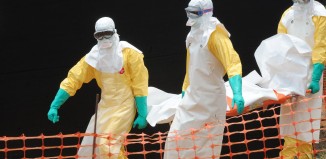Primary care, key strategy to prevent epidemics
Primary health care is the pillar of health systems and is central to preventing epidemics like Ebola; improving women’s and children’s health; controlling major infectious diseases, such as HIV and TB; and managing the rising burden of non-communicable diseases, such as heart disease and cancer.
Underscoring the urgent need to transform how essential health care is delivered in low- and middle-income countries, the Bill & Melinda Gates Foundation, World Bank Group and World Health Organization launched a new partnership to support countries in improving the performance of primary health care.
The new partnership, the Primary Health Care Performance Initiative (PHCPI), will support countries to strengthen monitoring, tracking and sharing of key performance indicators for primary health care. While many countries have identified primary health care as an urgent priority, they lack the data needed to pinpoint weaknesses, understand their causes and drive improvements.
The partnership will be launched at an event co-hosted by the governments of Germany, Ghana and Norway, where German Chancellor Angela Merkel will release a new framework, “Roadmap: Healthy Systems – Healthy Lives,” for global cooperation to strengthen health systems. The launch of these two complementary initiatives are taking place as world leaders meet at the United Nations to adopt 17 Sustainable Development Goals.
PHCPI partners highlighted the far-reaching benefits of stronger primary health care, including as a pathway to universal health coverage.
“For the first time, the world has set a goal with specific targets for universal health coverage by 2030,” says Dr Jim Yong Kim, President of the World Bank Group and co-founder of PHCPI. “To ensure that everyone has access to essential and affordable health services, countries must have strong primary health care systems to deliver them—that’s how we’ll reach the poorest and most vulnerable people with the care they need, in the most equitable way.”
Primary health care is a weak link in most health systems
As the foundation of health systems, primary health care connects people and families with trusted health workers and supportive systems throughout their lives and provides access to services ranging from family planning and routine immunizations to treatment of illness and management of chronic conditions. Health systems built on strong primary health care are more resilient, efficient and equitable.
“Strong primary health care systems are where people turn in their communities to stay healthy and get care when they fall sick. When primary health care works, it can meet the vast majority of people’s health needs,” says Dr Margaret Chan, Director-General of the World Health Organization. “Yet Ebola revealed what can happen, starting with primary care, when health systems are broken and in need of repair.”
All too often, primary health care is a weak link in health systems. More than 400 million people worldwide lack access to essential health services typically delivered through primary health care. The recent outbreak of Ebola, a disease that can be prevented through basic health measures, both exacerbated and was partially fueled by broken primary health care systems.
Several countries offer examples of high-performing primary health care. Brazil’s efforts to train and assign primary health care workers to specific neighborhoods have led to dramatic gains in health, especially in the country’s poorest areas.








